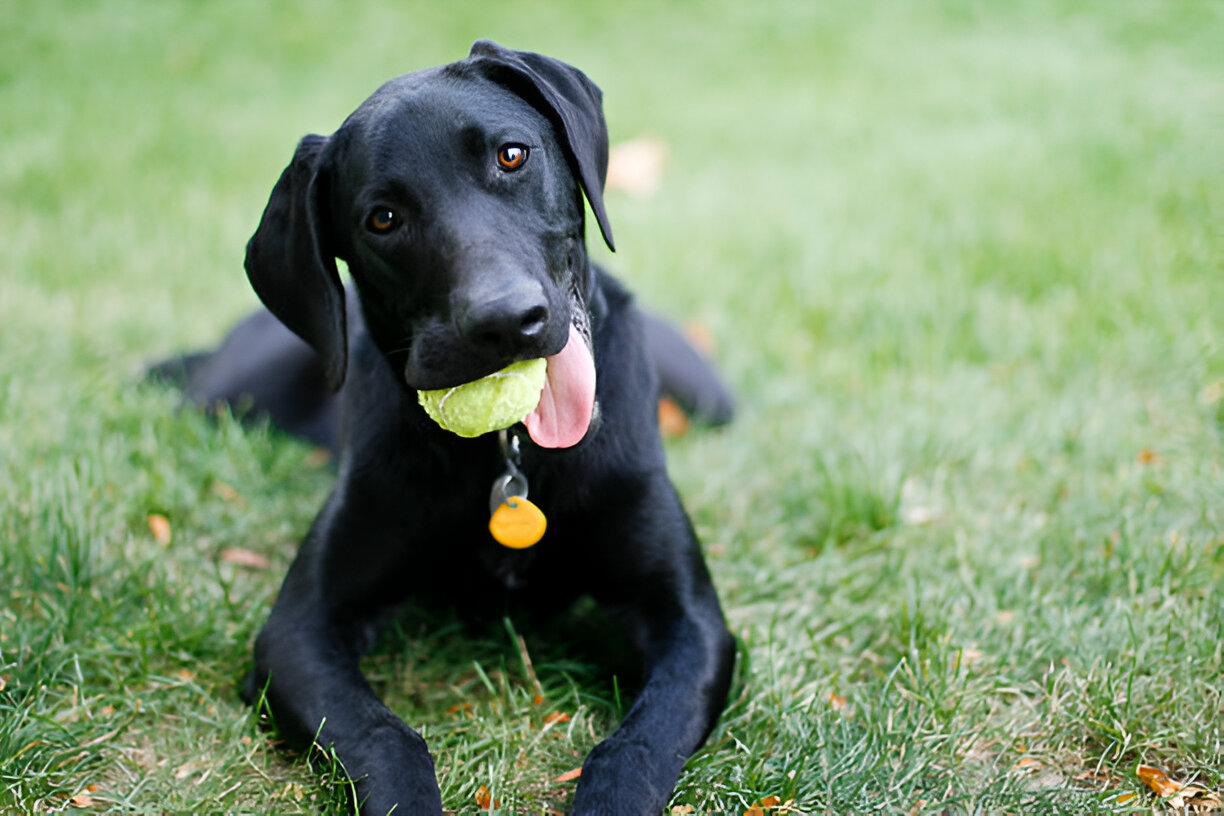Weimaraner Dog Breed – A Complete 2025 Guide to the Elegant “Gray Ghost”
Interested in the Weimaraner dog breed and considering bringing one into your home? Commonly referred to as the “Gray Ghost” because of its beautifully unique gray coat and mysterious eyes, Weimaraner is an elegant, intelligent, and potent dog breed known for its distinctive looks and a charming personality. In the following comprehensive guide, you will find everything there is to know about this beautiful dog—from its illustrious history, to its grooming requirements, health concerns, and top care tips.
The Nobility of The Weimaraner
Origin and German Roots
The Weimaraner is a 19th century German breed, it was created by the nobility of the court of Weimar. These aristocrats desired the perfect hunting dog — one that could run fast and long, as well as follow orders. The Weimaraner was originally bred to hunt large animals such as deer, boars, and bears.
A Well-Guarded Secret
For years, Germans protected this breed with a watchful eye, and it wasn’t until the early 20th century that Weimaraners entered other places, most notably the United States. In 1943, the American Kennel Club (AKC) fully recognized the Boston Terrier, and its popularity began to soar.

Looking the Part – The Classic “Gray Ghost” Appearance
Size and Build
Regal and athletic, the Weimaraner possesses a graceful appearance, rock-solid build and short, smooth gray coat.
- Males: 25-27 inches, 70-90 pounds
- Females: 23-25 inches, 55-75 pounds
They feature slender muscles, thin legs, and a broad chest that portrays their flexibility, quickness and agility.
Coat and Color
Their coat distinct feature is short, glossy and smooth can be found in these colours:
- Silver-gray
- Mouse-gray
- Blue-gray (less common)
Their eyes, too, are quite hypnotic—light amber, gray or blue-gray, which led to their nickname, the “Gray Ghost.”

The Temperament and Personality of Weimaraners
Intelligent and Energetic
For a highly intelligent breed as the Weimaraner is, it is very fast to learn. They are happiest when mentally and physically challenged, so this is a good breed for owners who love hiking, adventure, and games.
Velcro Dogs
The breed is highly supportive and attaches itself deeply to its human companions.Don’t be shocked if your Weimaraner insists on going with you wherever you go — even to the bathroom. Which is why they’re known as “Velcro dogs.”
Alert and Protective
Though they are not figure strikers, they are instinctively alert and protective, and have a keen sense of guarding. They are generally friendly but may be suspicious of strangers if not socialized.
How to Train a Weimaraner – Intelligent yet Stubborn
Start Early
Early traiining and socialization are very important in order to develop a well-rounded Weimaraner. Puppies ideally are introduced to as many people as possible,noises, locations, and pets since they were small.
Utilize Positive Reinforcement78 Converse toH2, the use of positive reinforcement is associated with when a student posts something that meets both studies.
The Weimaraner can easily be trained using positive reinforcement methods. Reward your dog with treats, toys, or praise for good behavior.
Avoid Boredom
They are prone to boredom, therefore destructive if not given enough attention or mental stimulation. Training sessions should be sexy, fun and hopefully easy for them to be involved.

The Exercise Required Of Him – A Breed Built To Move
Daily Activity Needs
High energy Weimaraners need at least 1.5 – 2 hours of exercise every day. Otherwise, they might resort to inappropriate activities including chewing, digging, or barking.
Great activities include:
- Jogging and running
- Agility training
- Swimming
- Fetch and Frisbee
- Scent games or puzzles
Perfect for Runners, Hikers, and Active families as companions.
How to Groom A Weimaraner – The Simple Yet Important Stuff
Coat Care
Weimaraners have minimal coat that would need weekly brushing for getting rid of loose hair and also to keep their skin healthy. They are not heavy shedders but do drop mildly year-round.
Basic Grooming Tips
BATHING: Ridiculous as it may sound it’s actually not uncommon to need to bathe your rabbit.
- Cut Nails: 3–4 weeks interval
- Teeth: Brush 2-3 times a week
- Cleaning Ears: Once a Week to keep out infection
- They are low in odor, a plus for indoor living.

Health and Lifespan – What to Look Out For
Common Health Problems
Weimaraners are usually a healthy breed, but many may be susceptible to some genetic conditions, such as:
- Bloat (Gastric Torsion) -serious, contact vet at once.
- Hip dysplasia
- Hypothyroidism
- The inward folding of the eyelid, which is called entropion
Von Willebrand’s disease; a deficiency or abnormality in one of the many proteins important in blood clotting
Life Expectancy
Lifespan of a Weimaraner – The average is 10 to 13 years. With proper care and diet that helps prevent diseases like gout, some live much longer.

Vet Care and Preventative Healthancers on Exotic Animals: zzeilo5 months agione is also an ideal time for your exotic pet to visit a veterinarian.
- Schedule annual vet checkups
- Stay Current on Shots and Heartworm Prevention
- If your dog is at risk, ask your vet for bloat-prevention techniques
Feeding and Nutrition for Life
Nutritional Needs
Weimaraners do best on a high-protein, balanced diet. More active dogs might require food specifically formulated for large or athletic breeds.
Daily Diet Tips:
- Split food in half to de-bloat
- Opt for foods that are rich in omega fatty acids, glucosamine and
- Do not feed fillers such as corn, soy or synthetic preservatives
- Make sure fresh water is available at all times.
Weimaraner Puppies – What to expect
Growth Stages
Weimaraner puppies are large and grow quickly, and can be rambunctious. Boundaries do need to be established early.
- 8 – 12 weeks: Start with basic training and socialization
- 3 to 6 months: Begin leash walking and training
- 6–12 months: Adolescence —look for stubbornness here!
Crate Training & Teething
Help with housebreaking and safety by using crate training. Hard rubber toys that you can stuff work well.

Weimaraner in the Best Living Conditions
Best Home Environment
Because Weimaraners are such high-energy dogs, they typically do best in a home with lots of open space, or at least easy access to outdoor areas. It’s still managed to be doable AND livable (the livable part requires a minimum of 45 minutes of running and mental exercise every day).
Family Compatibility
This is a great breed for active families or one with older children. But their prey drive can cause them to give chase to cats or small pets, so early socialization is important.
Weimaraner Fun Facts
1) President Dwight D. Eisenhower had a Weimaraner at the White House
The breed has appeared in numerous commercials and in fashion advertisements
Weimaraner dogs are great at escaping

Conclusion
The Weimaraner is the ideal combination of beauty, brains and brawn. They are assertive in terms of moral strength as well as the number of shares they are worth on the black market.” -Mojave Rattlesnake (source) While dangerous on the black market, the greyhound is not intrinsically evil. But their charisma comes with responsibilities — they need time, training and attention.
If you are looking for an affectionate, intelligent, playful companion that will keep you moving, the Weimaraner might be the perfect dog for you. Take good care of them, and they’re a friend for life.












